
Key results in 2020

Major business results
Summary of
business results
Summary of
business results
• a surge of interest in paid digital content in all of our key markets, i.e. Estonia, Latvia and Lithuania,
• rapid adjustment of the digital advertising market to the COVID-19 pandemic and a recovery from the peak of the virus outbreak in spring,
• more acute awareness of the need to safeguard fair competition in the global as well as local media market: increasing interest in market distortions of digital media created by major Internet platforms across in the world and raising of fundamental questions in respect of the role of the state in the Baltic media market.
One year ago we were expecting continued growth in digital subscriptions, i.e. increasing interest of consumers in high-quality journalism and increasing interest in buying digital products. The market was indeed moving in this direction and even more rapidly than we had expected. The total number of digital subscriptions of Ekspress Grupp, the largest provider of digital subscriptions for the written press in our target markets increased by 73% in the Baltic States. Paid digital subscriptions launched by Delfi Latvia and Delfi Lithuania a year earlier continued their rapid growth, increasing by 250% and 700%, respectively, in a year. Considering the outlook of how many total consumers of digital content and how many consumers of paid digital content there are in our target markets, it can be said with certainty that in the digital world, the business model of paid subscriptions in our markets is still in the early growth phase.
For the Baltic media houses, the biggest competitors in terms of financial resources in the digital advertising market are still international Internet platforms. In 2020, the activities of large technology companies fell under the scrutiny of legislators and competition regulators all around the world, incl. in the USA that is home to the Internet platforms predominantly consumed here. Although the investigations and court cases may still take years, on the basis of preliminary data it can already be said that the market power of these giants has made the society reflect and ask critical questions about the market power regulation, social and economic effects as well as future fair taxation. We are witnessing that consumers will clearly benefit from the ongoing processes, both in terms of privacy protection as well as improvement of freedom of choice when it comes to consumption of media. The activities of regulators will probably also have a balancing effect on the competitive positions over the long term, for example, the dominant platforms will become more open when it comes to their cooperation with media organisations, new business models will appear, etc.
During the year, the activities of publicly funded broadcasting companies came also under more scrutiny in our target markets. As there is sufficiently strong competition and a variety of opinions in terms of the production of online news among private media houses, according to the media companies state intervention in these markets is by no means justified or necessary. In respect of the digital news media in Estonia, Latvia and Lithuania, there are no market distortions that the states should resolve through publicly owned media houses with growing budgets. The media companies that have been active in the local market for years find it difficult to understand why taxpayers’ money should be used to build online entertainment portals or streaming platforms, or to produce content for them in the areas where the private sector is already active. To obtain fair assessment in the crucial issue related to the future of private media and if needed, more precise regulations, the Estonian and Lithuanian media companies turned to the European Commission in the year ended.
This year, we expect the continuation of current trends, strong growth of high-quality digital content, more and better choices for readers and certain reorganisation of digital markets, and clearer definition of competition that is related to the activities of Internet giants and national partners. Our expectations of the Baltic digital market in 2021 are as follows:
- greater popularity of the subscription-based business model in all markets, continued growth of costs made by consumers in digital content, growth in the number of those consumers who have multiple active subscriptions from different content providers in the same market
- fast development of smaller market sectors in the digital landscape, incl. accelerating growth of the subscriptions of business customers, widespread adoption of the subscription business model by periodicals with narrower customer groups
- certain stabilisation of the competitive situation in the local advertising market with international platforms.
In 2020, media segment revenue totalled EUR 43.7 million (2019: EUR 44.2 million). In the 4th quarter, advertising revenue demonstrated decent recovery. After the 2nd quarter, it is evident that advertising customers prefer the Internet and this has put paper In 2020, media segment revenue totalled EUR 43.7 million (2019: EUR 44.2 million). In the 4th quarter, advertising revenue demonstrated decent recovery. After the 2nd quarter, it is evident that advertising customers prefer the Internet. Print advertising revenue decreased as the COVID-19 pandemic further accelerated secular trends, largely impacting the entertainment, media and luxury categories.
The state of emergency related to COVID-19 still has the most profound impact on the Latvian ticket sales platform, where the Latvian State has imposed a 50% limit on the occupancy rate of events and starting from the middle of 4th quarter called the state of emergency and closed all the events. The Latvian government extended the state of emergency till 4th of April 2021. It is currently unforeseeable when major events can restart to a normal degree. The Group is positive about the vaccination process in Latvia and in Baltics in general and believes that in the second half of 2021 the local smaller events are back on the market.
Digital media is growing as expected. At the end of the 4th quarter of 2020, the Group's digital revenue accounted for 49% of total revenue and 71% of media segment revenue.
In 2020, media segment EBITDA was EUR 6.6 million (2019: EUR 6.0 million). As compared to the previous year, EBITDA increased by 11%. This was positively impacted by cost savings carried out throughout the Group and employee salary cuts as well as the salary subsidy received from the Estonian Unemployment Insurance Fun. The subsidy was accrued as income in the amount of EUR 0.8 million.
The joint venture Õhtuleht Kirjastus AS, a key media company on the Estonian market is recognised under the equity method and included as one-line item within finance income in the Group's results. In 2020, the revenue totalled EUR 13.4 million (2019: EUR 13.8 million). Despite the state of emergency in the 2nd quarter, the advertising and distribution revenue of Õhtuleht Kirjastus AS has remained stable throughout the year.
The Group still has strong customer relations in the Nordic countries and Western Europe, as result of which Printall has managed to maintain its share of exports despite the restrictions caused by COVID-19. In 2020, the share of revenue outside Estonia was 62% in 2020 (2019: 63%).
In 2020, EBITDA was EUR 2.2 million (2019: EUR 2.0 million). In 2020, EBITDA grew by 9% year-over-year. This was primarily impacted by the change in the structure of products related to COVID-19, as a consequence of which the segment production volumes have fallen but the company has managed to increase the profitability of Individual subscriptions.
In the 1st half of the year, AS Printall completed the installation of semi-finished product collection systems for magazine web press and flow-feed systems for binding machines with loading equipment for semi-finished product. It was represented the largest investment of the last few years and was launched in 2019. As a result of the investment, the production process of the printing house has been significantly automated. After the installation of the equipment, AS Printall has automated the work of about 25 people who were laid off during the 1st quarter of 2020. In 2021, the company plans to continue making investments to increase production efficiency and modernise its equipment park for the purpose of finding opportunities to improve profitability.
The Group's goal is the keep the printing service area as a diversified and modern area with innovative approaches where in today's changing environment the company can quickly adapt to various changes that impact the area.
● The number of digital subscriptions of AS Ekspress Meedia that publishes the news portal Delfi, newspapers Eesti Päevaleht, Maaleht, Eesti Ekspress and several popular magazines increased by 53% year-over-year and reached 49 696.
● At the same time, the number of digital subscriptions of AS Õhtuleht, 50% of which is owned by Ekspress Grupp, increased by 36% to 13 820.
● The market share of Ekspress Grupp in the digital subscriptions of all Estonian media outlets (according to the data by the Estonian Association of Media Enterprises) was 50% at the end of December.
● In Latvia, the number of digital subscriptions of Ekspress Grupp increased by almost 2.5 times and totalled 11 143 at the year-end. In Lithuania, the number of digital subscriptions totalled 6 595 at the year-end, increasing by almost 7.0 times in a year. Both in Latvia and Lithuania, digital subscriptions are not as widespread as in Estonia with Ekspress Grupp launching them in the market in 2019.
The year 2020 was a breakthrough year for digital subscriptions of the Group's periodicals in all markets. The driver behind the growth of subscriptions was the change in the attitudes and habits of people who are more willing to pay for digital content in their home language. The general background also supported this change – in the world dominated by fragmented information societies, objective journalism is increasingly more appreciated. Ekspress Grupp has been the most successful Estonian media company in terms of its digital subscriptions. The most popular subscription is Delfi’s complete package that provides access to the largest media outlets of Ekspress Grupp (except for Õhtuleht).
The Group launched the sale of paid content in Latvia and Lithuania only in 2019. The preliminary results in these markets also demonstrate that readers are willing to gradually embrace the digital subscription model. It is expected higher growth in the Latvian and Lithuanian market in the upcoming years.
At the time when two-thirds of the digital advertising funds of the Baltic States is moving tax-free into the hands of major global platforms, such as Google and Facebook, the addition of new digital subscribers is crucial for the survival of local journalism.
| Performance indicators (EUR thousand) | 2020 | 2019 | Change % | 2018 | 2017 | 2016 |
| Sales revenue | 63,243 | 67,456 | -6% | 60,489 | 54,070 | 53,324 |
| EBITDA | 7,004 | 6,772 | 3% | 4,263 | 6,261 | 7,280 |
| EBITDA margin (%) | 11.1% | 10.0% | 7.0% | 11.6% | 13.7% | |
| Operating profit* | 3,078 | 2,722 | 13% | 1,211 | 3,475 | 4,328 |
| Operating margin *(%) | 4.9% | 4.0% | 2.0% | 6.4% | 8.1% | |
| Interest expenses | (877) | (784) | -12% | (443) | (400) | (471) |
| Profit (loss) of joint ventures under equity method | 102 | (38) | 365% | (273) | (2) | 772 |
| Net profit/(loss) for the period* | 2,536 | 1,407 | 80% | 25 | 2,952 | 4,406 |
| Net margin* (%) | 4.0% | 2.1% | 0.0% | 5.5% | 8.3% | |
| Net profit /(-loss) in the financial statements (incl. write-downs and gain from a change in ownership interest) | 2,536 | 1,407 | 80% | 25 | 3,146 | 4,406 |
| Net margin (%) | 4.0% | 2.1% | 0.0% | 5.8% | 8.3% | |
| Return on assets ROA (%) | 2.7% | 1.6% | 0.0% | 4.2% | 6.1% | |
| Return on equity (%) | 4.9% | 2.8% | 0.0% | 6.1% | 8.9% | |
| Basic earnings per share | 0.08 | 0.05 | 0.00 | 0.11 | 0.15 | |
| Diluted earnings per share | 0.08 | 0.05 | 0.00 | 0.11 | 0.15 | |
| * The results reflect the outcome of regular business activities and do not include impairment losses on goodwill, gains from the changes in ownership interests in joint ventures, etc. | ||||||
| Balance sheet (EUR thousand) | 31.12.2020 | 31.12.2019 | Change % | 31.12.2018 | 31.12.2017 | 31.12.2016 |
| As of the end of the period | ||||||
| Current assets | 18,482 | 19,472 | -5% | 15,631 | 16,725 | 16,250 |
| Non-current assets | 75,696 | 75,935 | 0% | 63,286 | 62,597 | 61,507 |
| Total assets | 94,177 | 95,407 | -1% | 78,917 | 79,322 | 77,757 |
| incl. cash and cash equivalents | 6,269 | 3,647 | 72% | 2,228 | 2,818 | 4,572 |
| incl. goodwill | 43,085 | 42,628 | 1% | 39,799 | 39,920 | 38,904 |
| Current liabilities | 18,945 | 21,647 | -12% | 14,207 | 11,081 | 12,223 |
| Non-current liabilities | 20,613 | 22,137 | -7% | 14,276 | 15,747 | 14,462 |
| Total liabilities | 39,558 | 43,784 | -10% | 28,483 | 26,828 | 26,685 |
| incl. borrowings | 22,202 | 24,342 | -9% | 15,554 | 15,791 | 16,603 |
| Equity | 54,619 | 51,622 | 6% | 50,434 | 52,494 | 51,073 |
| Financial ratios (%) | 31.12.2020 | 31.12.2019 | 31.12.2018 | 31.12.2017 | 31.12.2016 | |
| Equity ratio (%) | 58% | 54% | 66% | 69% | 69% | |
| Debt to equity ratio (%) | 41% | 47% | 31% | 29% | 31% | |
| Debt to capital ratio (%) | 23% | 29% | 22% | 21% | 20% | |
| Total debt/EBITDA ratio | 3.17 | 3.59 | 3.63 | 2.44 | 2.17 | |
| Liquidity ratio | 0.98 | 0.90 | 1.13 | 1.65 | 1.37 | |















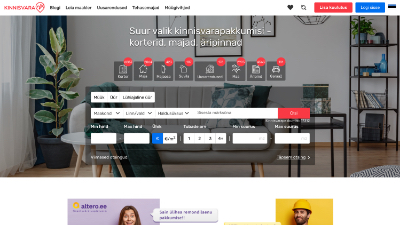
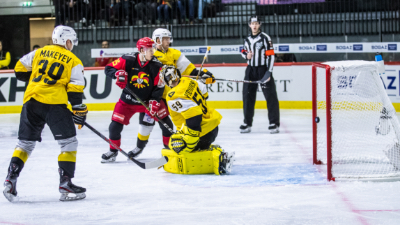
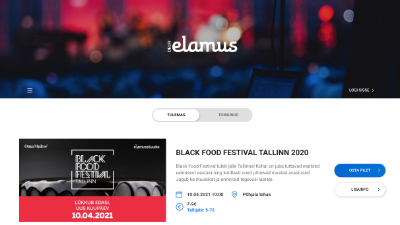
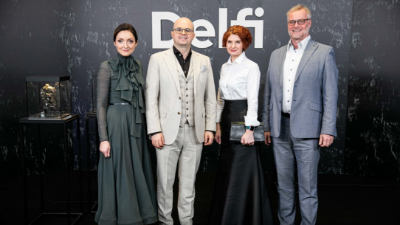
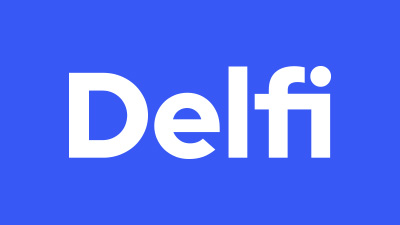


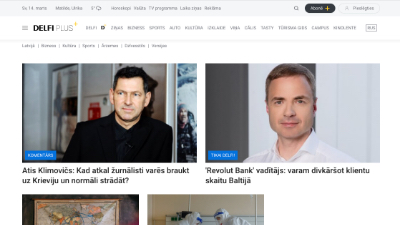
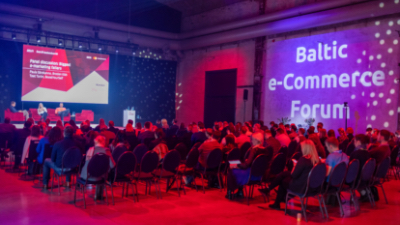
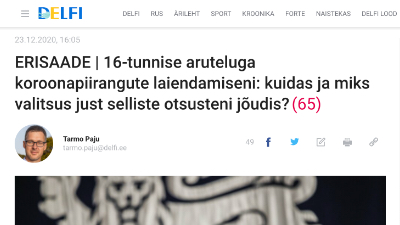
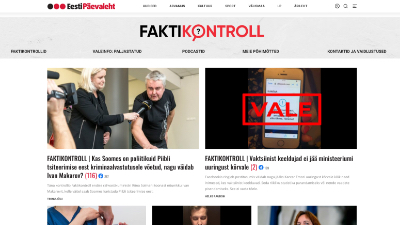




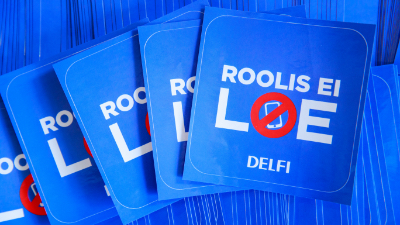
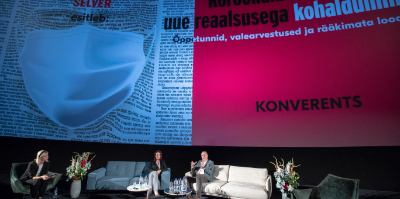
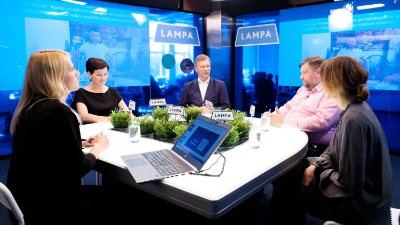
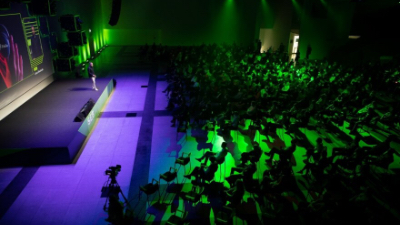
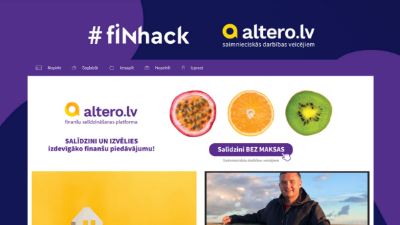





Statement of the chairman of the management board
The year 2020 was a breakthrough year for the Group’s media publications in terms of the growth of digital subscriptions. The key reason for the growth in digital subscriptions was the change in the attitudes and habits of people: they are more willing to pay for high-quality digital content in their own language. The change was supported by the general background – objective journalism is more and more appreciated in a society dominated by global fragmented information. A major setback hit the Group in mid-March when the Baltic States imposed a state of emergency to curb the spread of the coronavirus. This in turn led to sudden changes in the economic environment. The most susceptible companies to the effects of the restrictions were the Group’s media companies, especially outdoor media and the ticket sales platform in Latvia. As we look back on the past year we can state that owing to our quick reaction, clear and open communication, keeping of promises, correct management decisions, and the loyalty and contribution of all Group employees, Ekspress Grupp was able to cope with the corona crisis and continue to provide our readers with what they needed the most - fast, relevant and reliable information in the most appropriate channels.
– Mari-Liis Rüütsalu, Chairman of the Management Board